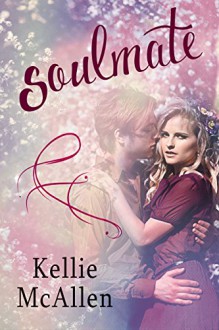
Full review can be found HERE

I very much enjoyed The Lunar Chronicles. It has everything. I'm talking adventure, dystopia, romance, comedy, political upheaval, mutants, heroines, mental health issues, racial misunderstanding, and SO MUCH MORE. (No, this isn't a commercial.) The final book in the series, Winter, was a whopper at over 800 pages (Harry Potter anyone?) and Meyer covered a lot of ground. Not only did she have the gargantuan task of fleshing out the character of Winter as she had done with the first 3 (4 if you count Fairest) but she also had to tie it all together to bring a conclusion to the overarching struggle of the series. Will Levana succeed in marrying Kai and becoming Empress of the Eastern Commonwealth? Do Thorne and Cress have a chance at a happily ever after? Can Scarlet be saved from Winter's menagerie? Will Winter's Lunar sickness ultimately result in her complete break from reality? GO READ WINTER TO FIND OUT!

Cress is the third installment in the Lunar Chronicles series by Marissa Meyer. For the uninitiated, head on over to my reviews of Cinder and Scarlet for some background info. I really like the way Meyer is able to balance out the primary focus of each book (in this case Cress) with the overarching theme of the series and all of the characters that have made appearances throughout. While this story is set in Earth's future and it deals with a race of people who dwell on the moon (Lunars) it is easy to slip into this reality. Yes, there are cyborgs. Yes, some people have the power to manipulate bio-electricity and therefore control people. However, the themes that are being discussed are easily translatable. Racial prejudice for one thing is very real in today's society and it's an important aspect in the Lunar Chronicles as a whole. Cress grew up in isolation with a tyrant as her one and only connection to the outside world. She was emotionally, verbally, and at times physically abused and this caused her to retreat into herself and create a fantasy world. This, in large part, is why she wants to help the Earthens and the ragtag band of misfits who are on the run from the authorities. War is now a certainty and the clock is ticking for Cinder before she must confront the Queen. Next in the series is Fairest: Levana's Story. I already have it on hold at the library. :-D

It must be said that John Green is an absolutely phenomenal writer. The only experience I had with his writing was The Fault in Our Stars which is completely different from Paper Towns (except for the main characters being teenagers). There is another similarity in that you are made more aware by reading this book. It's an excellent book for introspection. You're almost led to believe that the book is about Margo Roth Speigelman when in point of fact it's about Quentin "Q" Jacobsen and in actuality he is really just a stand-in for the reader. (This book is also a love letter to Walt Whitman. Seriously.) This is the story of someone who everyone felt they knew but at the same time was unknowable. It is more the story of someone who wanted to know that person as utterly and completely as they knew themselves. We are all so many facets and pieces put together and what we choose to show to the world may not even be a true reflection of what lives inside of us. John Green somehow articulates this and makes it okay that it is not always possible to get to the root of a person and that even if you do you might discover that what you find there is nothing like what you imagined or hoped. 10/10

This book brought a major change in formatting as the author started to alternate the narrative voices (if you're a longtime reader of the blog you know how I feel about this narrative device) between Tris and Tobias. Because I had grown accustomed to reading things from Tris's perspective it was difficult for me to get into the rhythm of Tobias. For the majority of the book, I wasn't fully convinced that Roth had a good grasp on his 'voice'. The reason for this shift in formatting became clear as the action of the story was divided between the two characters and to stay with Tris would mean missing out on half of the picture (which would have made it impossible to flesh out the ending of the series). This series reminds me of Harry Potter in that as the books continue the story becomes gradually darker and the maturity of the characters is accelerated due to some (or many) struggle(s). That should give you a hint as to how this series ended. I don't want to give it away but I will say that I charged through the ending hoping that I had somehow misread what had happened or that some kind of sci-fi scenario to occur which would then fix everything. Did it? Well, I guess you'll have to read Allegiant to find out.